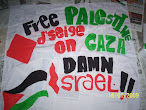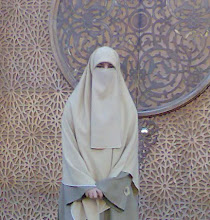| In this Book, the Holy Prophet's life, the history of the Arabs and the events which occurred during the period of the revelation of the Quran have not been mingled with the Divine Verses, as is the case with the Bible. The Quran is the pure word of God. Not one word therein is not divine. Not a single word has been deleted from its text. The Book has been handed down to our age in its complete and original form since the time of Prophet Muhammad. From the time the Book began to be revealed, the Holy Prophet had dictated its text to the scribes. Whenever some Divine Message was revealed, the Holy Prophet would call a scribe and dictate its words to him. The written text was then read out to the Holy Prophet, who, having satisfied himself that the scribe has committed no error of recording, would put the manuscript in safe custody. The Holy Prophet used to instruct the scribe about the sequence in which a revealed message was to be placed in a particular Surah (chapter). In this manner, the Holy Prophet continued to arrange the text of the Quran in systematic order till the end of the chain of revelations. Again, it was ordained from the beginning of Islam that a recitation of the Holy Quran must be an integral part of worship. Hence the illustrious Companions would commit the Divine verses to memory as soon as they were revealed. Many of them learned the whole text and a far larger number had memorized different portions of it. Method of preservations of the Quran during the Prophet's time Besides, those of the Companions (pbut) who were literate used to keep a written record of several portions of the Holy Qur'an. In this manner, the text of the Holy Qur'an had been preserved in four different ways during the lifetime of the Holy Prophet (PBUH): (2) Many of the Companions learned the whole text of the Qur'an, every syllable of it, by heart. (3) All the illustrious Companions, without an exception, had memorized at least some portions of the Holy Qur'an, for the simple reason that it was obligatory for them to recite it during worship. An estimate of the number of the illustrious Companions may be obtained from the fact that one hundred and forty thousands Companions had participated in the Last Pilgrimage performed by the Holy Prophet (PBUH). (4) A considerable number of the literate Companions kept a private record of the text of the Qur'an and satisfied themselves as to the purity of their record by reading it out to the Holy Prophet (PBUH). It is an incontrovertible historical truth that the text of the Holy Qur'an extant today is, syllable for syllable, exactly the same as the Holy Prophet (PBUH) had offered to the world as the Word of God. After the demise of the Holy Prophet, the first Caliph Hadhrat Abu Bakr (PBUH) assembled all the Huffaz and the written records of the Holy Qur'an and with their help had the whole text written in Book form. In the time of Hadhrat 'Uthman (PBUH) copies of this original version were made and officially dispatched to the Capitals of the Islamic World. Two of these copies exist in the world today, one in Istanbul and the other in Tashkent. Whosoever is so inclined may compare any printed text of the Holy Qur'an with those two copies, he shall find no variation. And how can one expect any discrepancy, when there have existed several million Huffaz in every generation since the time of the Holy Prophet (PBUH) and in our own time? Should anyone alter a syllable of the original text of the Qur'an, these Huffaz would at once expose the mistake. In the last century, an Institute of Munich University in Germany collected FORTY-TWO THOUSAND copies of the Holy Qur'an including manuscripts and printed texts produced in each period in the various parts of the Islamic World. Research work was carried out on these texts for half a century, at the end of which the researchers concluded that apart from copying mistakes, there was no discrepancy in the text of these forty-two thousand copies, even though they belonged to the period between the 1st Century Hijra to 14th Century Hijra and had been procured from all parts of the world. This Institute, alas! perished in the bombing attacks on Germany during World War II, but the findings of its research project survived. Another point that must be kept in view is that the word in which the Qur'an was revealed is a living language in our own time. It is still current as the mother tongue of about a hundred million people from Iraq to Morocco. In the non Arab world too, hundreds of thousands of people study and teach this language. note: This text uses the word God. It is Important to distinguish between God and Allah. Allah is the arabic for God, it differs in that in english we can say gods i.e. suggesting more than one, or goddess suggesting a gender, we cannot do so with the arabic word, Allah. Whilst Allah would be a better name to use, the word God serves its purpose for those unfamiliar with it and Allah (swt) knows best. Brief History of Compilation of the Qur'an Adapted from an article in Perspectives, Vol 3, No. 4, Aug/Sept 1997 During the life of the Prophet (saas) (570-632 CE) The Prophet (saas) used to recite the Qur'an before angel Jibreel (Gabriel) once every Ramadan, but he recited it twice (in the same order we have today) in the last Ramadan before his death. Jibreel also taught the Prophet (saas) the seven modes of recitation. Each verse received was recited by the Prophet, and its location relative to other verses and surahs was identified by him. The verses were written by scribes, selected by the Prophet, on any suitable object - the leaves of trees, pieces of wood, parchment or leather, flat stones, and shoulder blades. Scribes included Ali Ibn Abi Talib, Mu'awiyah Ibn Abi Sufyan, Ubey Ibn Ka'ab, Zayed Ibn Thabit. Umar Ibn Al-Khattab urged Abu Bakr to preserve and compile the Qur'an. This was prompted after the battle of Yamamah, where heavy casualties were suffered among the reciters who memorized the Qur'an. Abu Bakr entrusted Zayed Ibn Thabit with the task of collecting the Qur'an. Zayed had been present during the last recitation of the Qur'an by the Prophet to Angel Jibreel (Gabriel). Zayed, with the help of the companions who memorized and wrote verses of the Qur'an, accomplished the task and handed Abu Bakr the first authenticated copy of the Qur'an. The copy was kept in the residence of Hafsah, daughter of Umar and wife of the Prophet. Uthman ordered Zayed Ibn Thabit, Abdullah Ibn Al Zubayr, Saeed Ibn Al-Aas, and Abdur-Rahman Ibn Harith Ibn Hisham to make perfect copies of the authenticated copy kept with Hafsa. This was due to the rapid expansion of the Islamic state and concern about differences in recitation. Copies were sent to various places in the Muslim world. The original copy was returned to Hafsa, and a copy was kept in Madinah. Dots were put as syntactical marks by Abu Al-Aswad Al Doaly, during the time of Mu'awiya Ibn Abi Sufian (661-680 CE). | |
2009-02-26
History of the Qur'an
perkongsian thaqofah 'Aysha..dikau qudwahku at 8:59 PM
Subscribe to:
Post Comments (Atom)
































0 comment:
Post a Comment